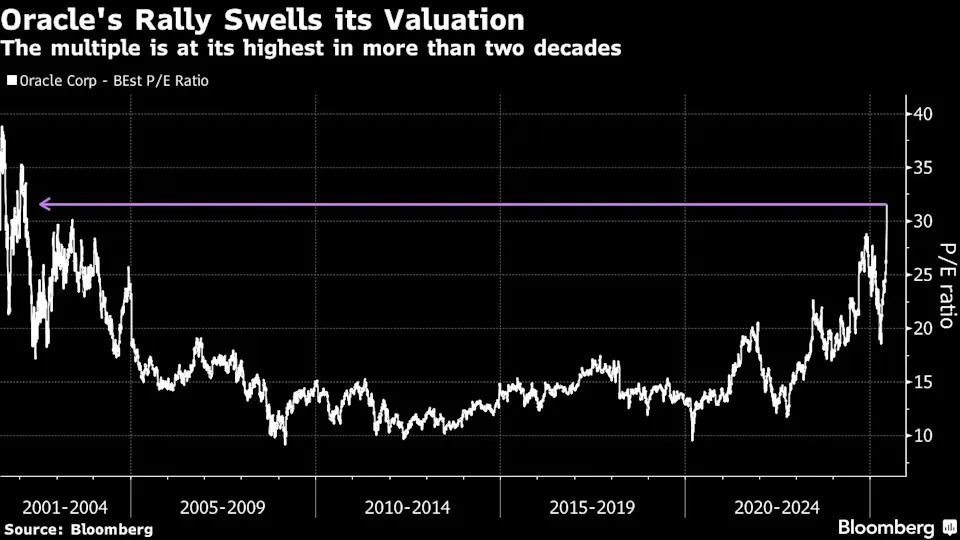
Oracle’s $116 Billion Surge Leaves Little Room for Error on AI
Key Points
- Oracle Corp. (ORCL) shares have surged 75% since April, driven by AI-fueled revenue growth, but are now at their most overbought level in 25 years.
- The stock trades at its highest valuation in over two decades, with a price-to-earnings ratio of 31, nearly double its historical average.
- Analysts predict Oracle’s revenue growth to reach 16% in the upcoming fiscal year, up from 8.4%, with net income expected to rise 15% in fiscal 2026.
- Despite high valuations, experts believe Oracle’s AI-driven growth justifies the premium, positioning the company well for future demand.
- Oracle’s cloud-computing investments are paying off, though its market share lags behind giants like Amazon, Microsoft, and Alphabet.
Summary
Oracle Corp. (ORCL) is at a critical juncture as its stock has soared 75% since April, fueled by strong AI-driven revenue growth, highlighted by its best two-day gain since 2001 after a recent earnings report. However, this rally has pushed the stock to its most overbought level in 25 years and a valuation peak not seen in over two decades, with a price-to-earnings ratio of 31. Despite recent dips amid geopolitical tensions, analysts remain optimistic, forecasting revenue growth of 16% for the upcoming fiscal year, up from 8.4%, and a 15% rise in net income for fiscal 2026. Oracle’s aggressive investment in cloud computing and AI, including a partnership with OpenAI, underscores its potential, though it trails larger competitors like Amazon and Microsoft in market share. Experts like HSBC’s Stephen Bersey argue that Oracle’s growth outlook, transitioning from single-digit to teen growth rates, justifies its high valuation, positioning it as a key player in the AI space. However, the disparity between stock price gains and growth expectations raises concerns about sustainability, with some investors questioning if the rally has gone too far, too fast. Oracle’s current “teenager phase,” as described by Synovus Trust’s Dan Morgan, suggests significant future potential, reminiscent of Microsoft’s cloud pivot or Nvidia’s data center boom, but execution remains critical to maintaining momentum.
yahoo
June 17, 2025
Stocks


